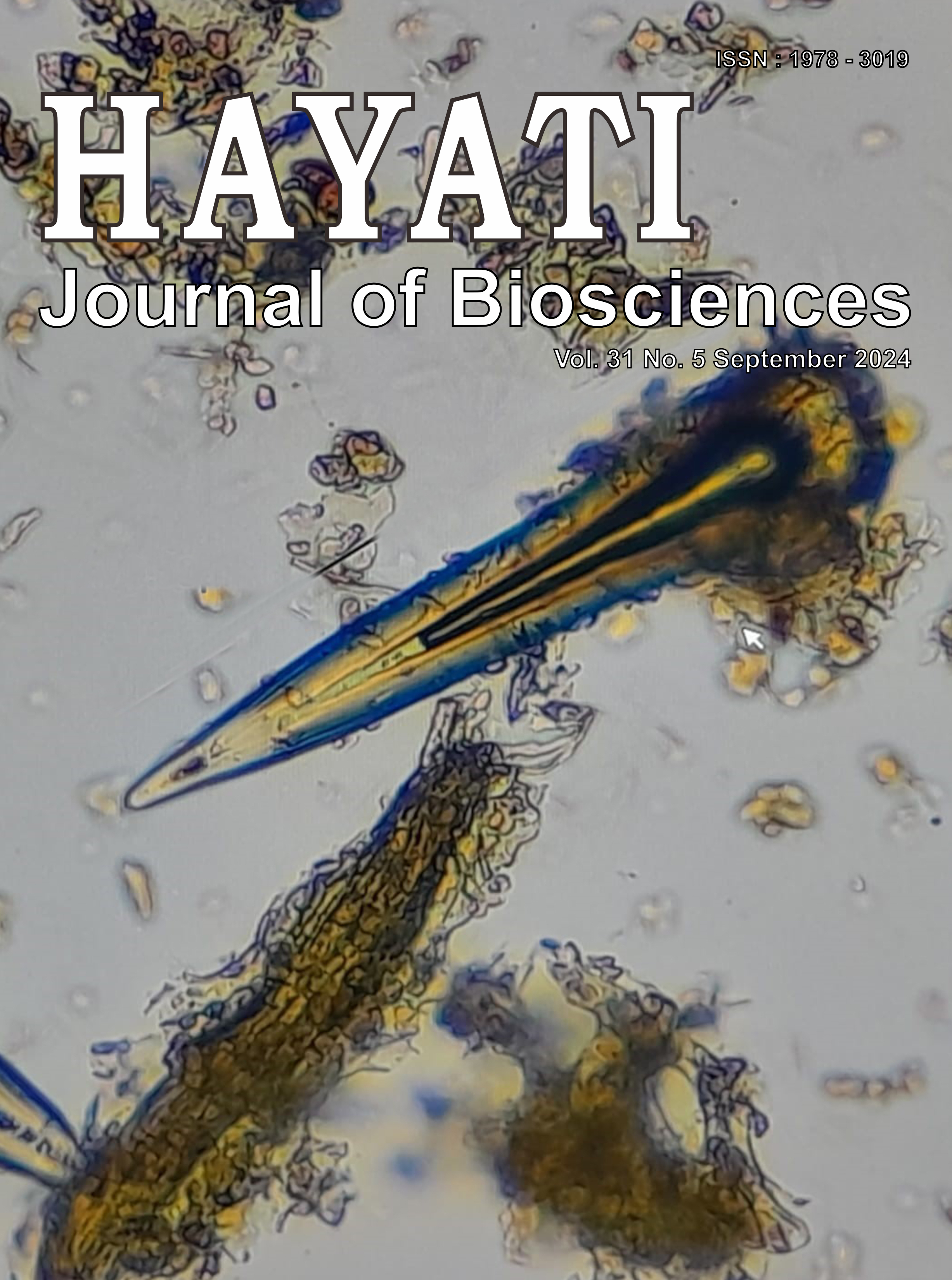Histological and Molecular Evaluation of the Antiproliferative Activity of Allium ampeloprasum Water Extract Against Oral Mucosa Cell Line (Gingival Cancer)
DOI:
https://doi.org/10.4308/hjb.31.5.829-835Abstract
Gingival carcinoma is a malignant neoplasm affecting the oral mucosa and is associated with significant morbidity and mortality. Allium ampeloprasum var. porrum water extracts have gotten a lot of attention because of their bioactive components, such as polyphenols, flavonoids, and alkaloids, which have a variety of pharmacological activities, including antiproliferative actions. This study aimed to evaluate the histological and molecular effects of Allium ampeloprasum (leek) water extract on the proliferation of the murine gingival cancer cell line. Histological evaluation was conducted to examine morphological changes induced by extract treatment. Molecular mechanisms underlying the observed histological changes were investigated using real-time polymerase chain reaction (PCR). Expression levels of key genes associated with cell proliferation and apoptosis were assessed. Histological findings revealed a dose-dependent decrease (100, 50, 25, 12.5, and 6.25 µg/ml) in cell density and altered cell shape in the treated cell line. Also, the percentage of inhibition for the oral mucosa cell line was high, with a significant P of 0.006, in the treated group compared to the control group. Additionally, water extract has an IC50 value of 61 g/ml. The P53 fold increment of gene expression is 0.6, which means the expression level in the experimental condition is 60% higher than the control. This study provides evidence for the potential antiproliferative activity of Allium ampeloprasum water extract on the oral mucosa cell line. The observed histological changes, coupled with the modulation of key genes involved in proliferation and apoptosis, suggest that leek water extract may have therapeutic implications in managing oral cancer.
Downloads
Downloads
Published
Issue
Section
License
HAYATI J Biosci is an open access journal and the article's license is CC-BY-NC. This license lets others distribute, remix, tweak, and build upon author's work, as long as they credit the original creation. Authors retain copyright and grant the journal/publisher non exclusive publishing rights with the work simultaneously licensed under a https://creativecommons.org/






















.png) Bogor Agricultural University
Bogor Agricultural University Department of Biology
Department of Biology The Indonesian Biological Society
The Indonesian Biological Society 

